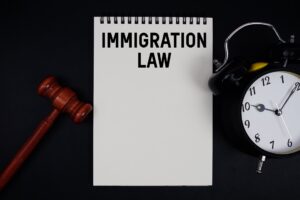At US-ILC, we listen, we care, we deliver: Let our 89 years of combined experience help you navigate the complexities of immigration law!
Every year, the U.S. Citizenship and Immigration Services (USCIS) conducts a random H-1B lottery to select foreign nationals who may be eligible for employment in a specialty occupation. Not surprisingly, there is a high level of demand for these visas. Of these visas, 65,000 are reserved for candidates holding the minimum of a bachelor’s degree, and another 20,000 are for those holding advanced degrees.
If you are fortunate enough to be selected, your prospective employer will file an H-1B petition on your behalf with USCIS. If your case is successfully approved, you may begin working for the petitioning employer in the U.S. for the duration of the H-1B validity period. Unfortunately, an employer still has the right to terminate your H-1B employment at any point before your H-1B status expires.
If this happens to you, do not assume you must immediately leave the U.S. Instead, you will be granted a 60-day grace period before having to depart. Keep in mind that the grace period begins the day after your employment is officially terminated, which is determined by the last day you receive a wage or salary. This 60-day grace period is crucial, as it will allow you some time to pursue other options for remaining in the U.S. in legal status.
Now, what are these options?
Find a New H-1B Employer
One major step to take if you want to remain in the U.S. legally is to seek a new H-1B company sponsor. If you are successful and a new employer files an H-1B petition for you within the 60-day grace period, then you will be able to transfer to the new company as soon as the USCIS receives the H-1B petition. While this option would be the most appealing, finding a replacement employer to file an H-1B transfer petition for you before your grace period ends may be difficult. For this reason, you may also wish to pursue other options simultaneously or instead of using this route.
Obtain a Change of Status
If your H-1B is terminated before the expected expiration date, you can also apply to change to another visa status, such as F-1 or B1/B2. You can also file an application to change your status to H-4 if you’re married and your spouse holds H-1B status. Once again, the change of status must be filed before the 60-day grace period expires.
Apply for Adjustment of Status
You may be eligible to self-petition for an immigrant visa within the 60-day grace period after losing your H-1B position, but it will largely depend on your professional credentials. Your options for self-petitioning can include an EB-1 Extraordinary Ability petition, or an EB-2 National Interest Waiver. If you choose one of these options, you can concurrently file for adjustment of status and include an application for employment authorization. If the self-petition is approved, it will allow you to remain in the U.S. beyond the 60-days and obtain work authorization while your adjustment of status is pending.
Secure an Employment Authorization Document
In some cases, if you lose your H-1B position, you may be eligible to apply for an Employment Authorization Document based on compelling circumstances. This route is only available to foreign workers with approved I-140 petitions, but who are not yet eligible to apply for an immigrant visa based on the Visa Bulletin. Obtaining an EAD through compelling circumstances will allow you to work in the U.S. for up to one year. Your dependent spouse and children will also be allowed to work.
If you’re an H-1B visa holder whose position has been terminated, of if you have questions regarding another immigration matter, contact U.S. Immigration Law Counsel for a strategy session to discuss your case.




